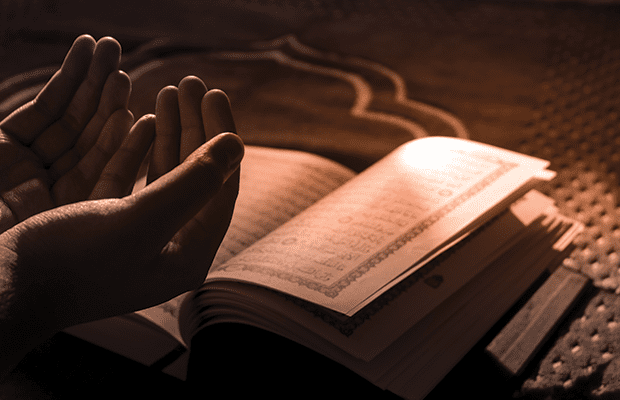Last year, I had the privilege of being able to read Abdul Hakim Murad’s Travelling Home: Essays on Islam in Europe. It is nothing short of a spectacular read and I highly recommend it for all those with a keen interest in Islam’s place in the West.
However, it is also a scathing text that criticised the university I study at, leading to a short-lived crisis of belonging. In the chapter, ‘The Multiple Horizons of British Islamic Scholarship’, Murad quotes Benedictine theologian Benedict Ashley OP to condemn what has become of modern universities:
“The very term ‘university’ means many-looking-towards-one, and is related to the term ‘universe’, the whole of reality. Thus, the name no longer seems appropriate to such a fragmented modern institution whose unity is provided only by a financial administration and perhaps a sports team,” Ashley argues.
The university is now built on the tenets of rationalism and utility, where physical knowledge and wealth creation purportedly reign supreme. In the words of Murad, the “non-mercantile unifying principle has been lost”. What was once an institution where individuals sought to attain a public truth is now little more than a degree factory, where compliance with whatever dogma sells is a financial imperative.
However, these sentiments should not be taken to an extreme whereby Muslims are viewed as dogmatic and unconcerned with physical knowledge. The Qur’an invites the study of physical phenomena: “Indeed, in the creation of the heavens and the earth and the alternation of the day and night there are signs for people of reason” (3:190). The revealed Text drives spiritual progress, while science and the laws of material existence exist as a separate branch of learning to drive human progress.
In fact, some would consider the separation Islam makes between secular scientific learning and revelation as one that freed secular science from the theocratic dogma that plagued pre-Islamic worldviews. This is a distinction that conservative Christianity considers increasingly inconvenient as Christian nationalism becomes a de facto policy in American conservative politics.
But the Golden Age of Islam easily demonstrates this commitment to the sciences. Yet what of the rationalist, philosophical university? Can a young Muslim, like myself, survive in the modern secular university which is seemingly at odds with the metaphysics and tenets of Islam? What am I to do with the close encounters of the ‘faith’ kind?
Abu Huraira reported: “The Messenger of Allah, peace and blessings be upon him, said,
‘The word of wisdom is the lost property of the believer. Wherever he finds it, he is most deserving of it.’” (Sunan al-Tirmidhī 2687). Whether a ‘word of wisdom’ can exist beyond the parameters of the Quran and the Sunnah is a frightening prospect, but there is a demonstrated Islamic tradition whereby rationalism becomes in service of faith rather than a harbinger of disbelief. After all, rationalism, in the context of faith, calls for careful discernment that balances evidence, ethics, and the desired outcome. I firmly believe that Muslims still have a place at the secular university, despite the postmodern culture that pervades them.
Abbasid Caliph Al Ma’mun inspires a tradition through which rationalism and philosophy could be appropriated by Muslims to demonstrate the revelation. In 823 C.E., he found the Bayt Al Hikmah, the House of Wisdom, where scholars translated Greek philosophy into Arabic. Thus, a rich and intellectual tradition that engaged with the secular to better one’s faith was formed. In the words of the French Alain de Libera: “philosophy on Muslim soil was not the philosophy of Muslims but the history of the philosophies that Muslims produced or allowed to be produced after the conquest – pagan, Christian, Muslim, and Jewish; Muslim philosophy carried out by religious clerics, ‘secular’ philosophy done by philosophers; eastern and western, Mediterranean or continental, Arab or non-Arab philosophies, Persian philosophies and Turkish philosophies.”
Muslim scholars such as Algazel, Avicenna, and Averroës engaged in the language of rationality and philosophy by virtue of the caliph Al Ma’mun’s commitment to overcoming the fear of philosophy. The secular university, albeit imperfect, provides Muslims with the capacity to continue a historical tradition of engaging with words of wisdom and finding our lost property.
And so we have come full circle. While Murad rightfully privileges an individualism and postmodernism that prevents a true Islamic authenticity in scholarship at universities, young Muslims can endeavour to reignite that tradition of truth seeking when encountering Leibniz, Bergson, Kant, or Nietszche. Perhaps through this endeavour, to travel home would be the equivalent to travelling to Camperdown, without fear of encounter and disbelief.





